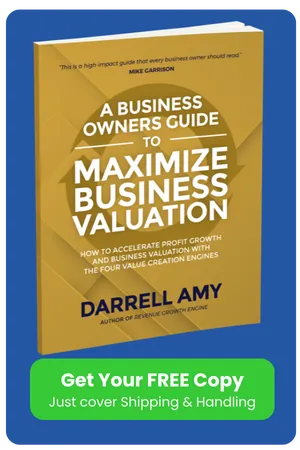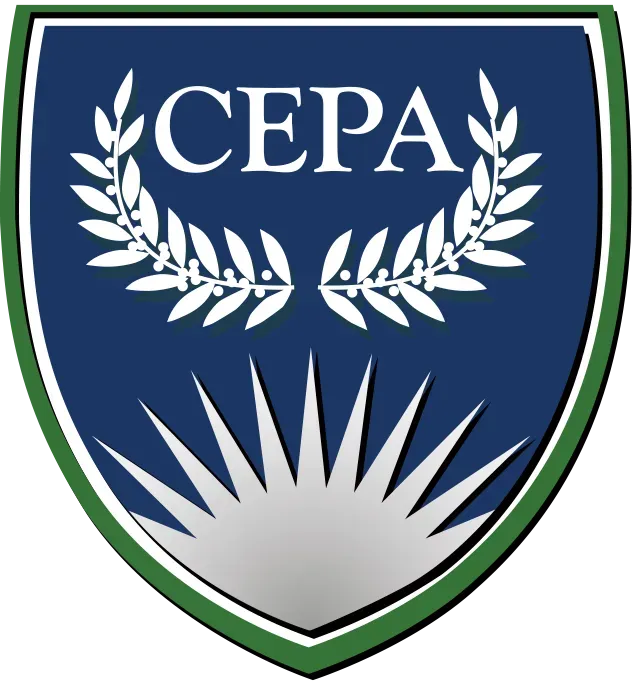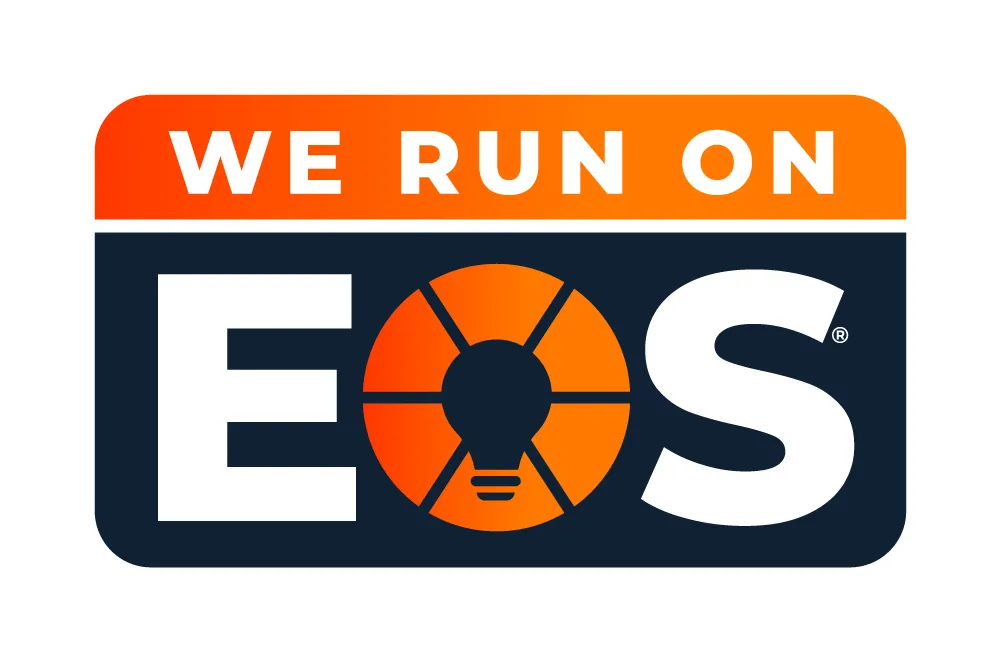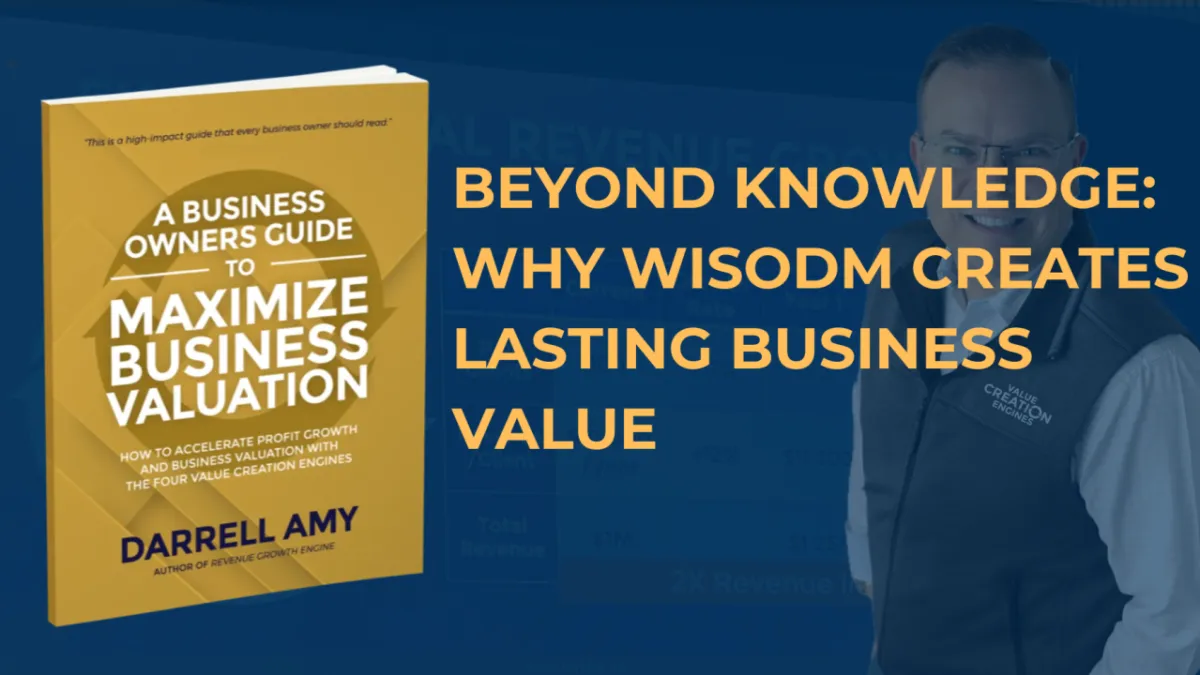
Beyond Knowledge: Why Wisdom Creates Lasting Business Value
Stewarding a business today requires more than data and knowledge. It requires wisdom—the skillful application of knowledge to make decisions that create long-term value.
In a world overflowing with information, knowledge alone no longer differentiates successful businesses. Data supports decisions, but at the end of the day, someone must make the call. Those decisions shape the trajectory of the business, influencing not only revenue and profit but also resilience, culture, and ultimately, enterprise value.
In the mid-1990s, when I helped companies grow their document management businesses, we were already amazed at the rapid growth of knowledge. At that time, knowledge was doubling approximately every 18 to 24 months—a pace that felt overwhelming. By 2010, the total volume of information had reached 2 zettabytes. Today, that figure has exploded to over 185 zettabytes. That’s enough data to fill 250 billion DVDs. Stacked up, those DVDs would reach 186,000 miles into the sky—80 percent of the way to the moon.
The growth of data has brought a corresponding acceleration of change. Artificial intelligence now searches and synthesizes vast amounts of information in seconds, presenting insights through text, audio, and video. AI can also apply this information to make split-second decisions, as demonstrated in autonomous vehicles.
Beyond technology, change is reshaping global trade and economic structures. The long-standing model of free trade is evolving, introducing ripple effects across virtually every industry.
Change, however, is neutral. It presents both opportunities and threats. Some of today’s largest and most valuable companies were born in times of disruptive change. Many others failed to adapt and were swept away.
In the face of overwhelming data and relentless change, businesses do not lack information. They lack wisdom.
Wisdom is more than knowing facts. As the ancient Hebrew scriptures describe it (חָכְמָה), wisdom is skillful living—discernment applied to action. It is the intangible quality that guides leaders in making sound decisions. It creates stability amid volatility and enables businesses to thrive across economic cycles.
Most importantly, wisdom has become a value driver. Buyers look for leadership teams with the judgment to sustain and grow a company’s value. Investors value cultures where wisdom tempers ambition and experience informs innovation. Companies that develop and apply wisdom increase both their readiness and attractiveness—two critical factors that influence the multiple a buyer is willing to pay.
Where Do You Get Wisdom?
Experience
Experience is a good place to start. Jim Rohn once told a group of executives he knew exactly what would happen over the next decade. His answer: the same things that have happened for the last 6,000 years.
There will be change. Change will bring both challenges and opportunities. Sometimes, opportunity will outweigh the challenges. Other times, the challenges will seem overwhelming. Expansion will be followed by contraction. Recession will be followed by growth.
We can—and should—lean on experience. In my observation, older people tend to stay calm in the face of change. They’ve seen a few things. We need to be steady at the wheel.
That said, experience alone is no longer enough. While trade shifts and technological revolutions aren’t new, the speed and complexity of today’s changes are unprecedented.
Ask God
Experience is helpful, but it’s not sufficient. We need divine wisdom.
"If any of you lacks wisdom, let him ask of God, who gives to all generously and without reproach, and it will be given to him." — James 1:5
If you’ve lived long enough, you’ve faced at least one crisis that brought you to your knees. What if we took a proactive approach? Instead of waiting for a crisis, what if we cultivated the humility to ask for wisdom daily?
Love
Finally, we must make decisions with love. Paul writes, "Knowledge puffs up, but love builds up." — 1 Corinthians 8:1
We have abundant knowledge. If we don’t know something, we can have ChatGPT generate deep research in seconds. Knowledge is not the problem.
But knowledge can puff us up—just like the excessive tortilla chips I ate at lunch yesterday. Both kinds of puffiness hinder good decision-making.
Love builds up.
Make decisions with your people and for your people.
Jim Collins calls it a "council." Vern Harnish refers to a "strategic thinking team." Patrick Lencioni helps us identify people with the strengths of Wonder, Invention, and Discernment. Find these people. Empower them.
Last night, I spoke with a friend working at a cold, publicly traded company that treats human resources like raw materials—no different than steel or wire. Fear and discouragement have infected the team. Many have left. Those remaining are fearful and disengaged.
We need our people. King Solomon wisely observed, "Where there is no guidance, a people falls, but in an abundance of counselors there is safety." — Proverbs 11:14
We also need external advisors. As a strategic value advisor, I see firsthand the power of outside perspectives. Wisdom recognizes the value of counsel.
Wisdom: An Intangible That Drives Enterprise Value
When we consider the Four Value Creation Engines™—Revenue Growth, Process Optimization, Culture Development, and Strategic Innovation—wisdom is the multiplier that enhances every engine.
Revenue Growth requires wise discernment about which opportunities to pursue and which to avoid.
Process Optimization depends on wisdom to determine which efficiencies to prioritize without sacrificing flexibility or innovation.
Culture Development is built on wisdom that fosters resilience, empathy, and long-term thinking.
Strategic Innovation demands wisdom to balance bold creativity with prudent risk management.
In other words, wisdom is not just a virtue—it’s a business asset. It increases your company’s readiness and attractiveness, driving up both the quality and the multiple of your profits.
In Conclusion
Knowledge will continue to grow. Change will continue to disrupt. But wisdom will create lasting business value.
Draw from your experience. Ask God for insight. Cultivate wisdom across your leadership team. Lean into your people. Engage trusted advisors.
My prayer is that we will navigate this season of knowledge and change with wisdom—not just to survive, but to build enduring value and impact.
Originally published on Darrell Amy's LinkedIn.
